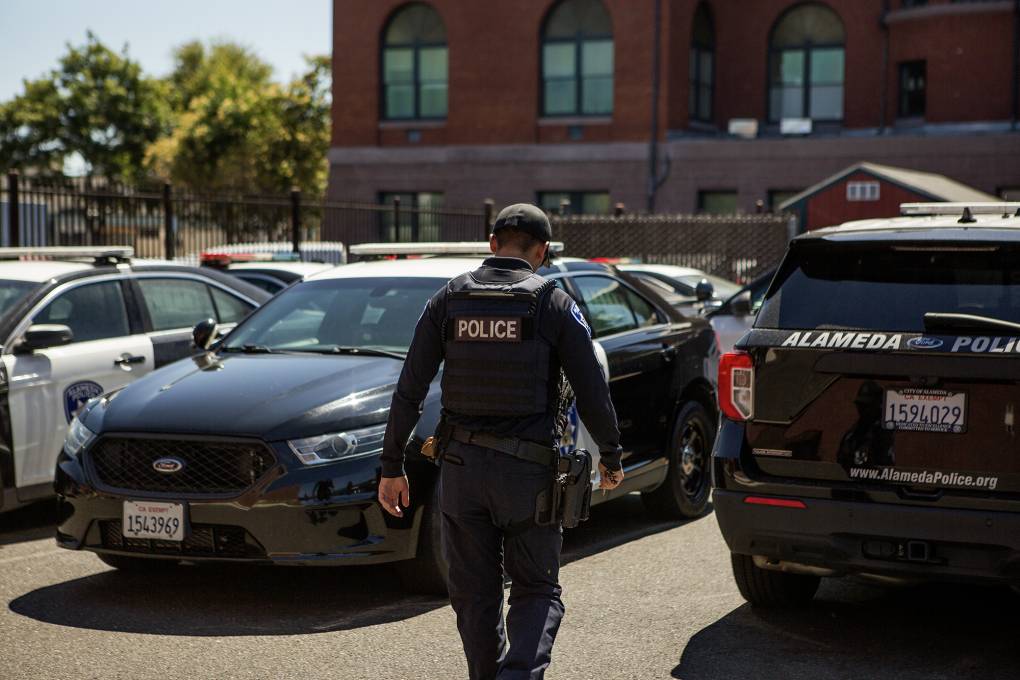
For clues, Watkins’ team shifted their focus to Emergency Medical Services. As the first medical responders on scene, EMS staff take notes on a child’s blood pressure and heart rate, as well as a short description of what was happening when they arrived.
By analyzing tens of thousands of these narratives and searching for terms related to handcuffing, the researchers found 833 handcuffing events involving kids in crisis. Police were 1.8 times more likely to handcuff Black children than their white counterparts — a disparity that climbed to 2.6 times more likely for Black girls — and they were 1.5 times more likely to do so in disadvantaged neighborhoods.
“If anyone else were doing it, it would be a form of child abuse — it would be recognized as such,” said UC Berkeley African American studies professor Nikki Jones, a sociologist-criminologist who’s spent a decade studying policing and violence in urban neighborhoods. “But because the police are doing it and because they have this logic that’s based on their expertise, then we are supposed to read it as something other than extremely damaging to a child.”
Jones rode along with police in an unnamed California jurisdiction as part of her own Army Office of Research-funded study on race and law enforcement attitudes published last year. Jones said police often view children of color as older and less vulnerable than they are and focus on obedience — a tall order when a child is mentally unwell.
“Once they’re in field training and once they begin to do the work of policing, they develop what they consider to be their own expertise,” Jones said. “Officers responding in a more aggressive way to people who live in certain neighborhoods — they don’t think about that as biased. They think about that as the kind of expertise that a morally competent police officer would have.”
The study recommends taking an alternative approach to responding to mental health emergencies by expanding programs that send out mental health experts instead, such as Alameda County’s Mobile Crisis Team and San Francisco’s Street Crisis Response Team.
Meanwhile, UCSF researchers hope to undertake a follow-up study examining the longer-term outcomes of children who are handcuffed during mental and behavioral health crises.
Nov. 20: This article was updated to clarify which program in Alameda County sends mental health experts to emergency calls as an alternative to police.

